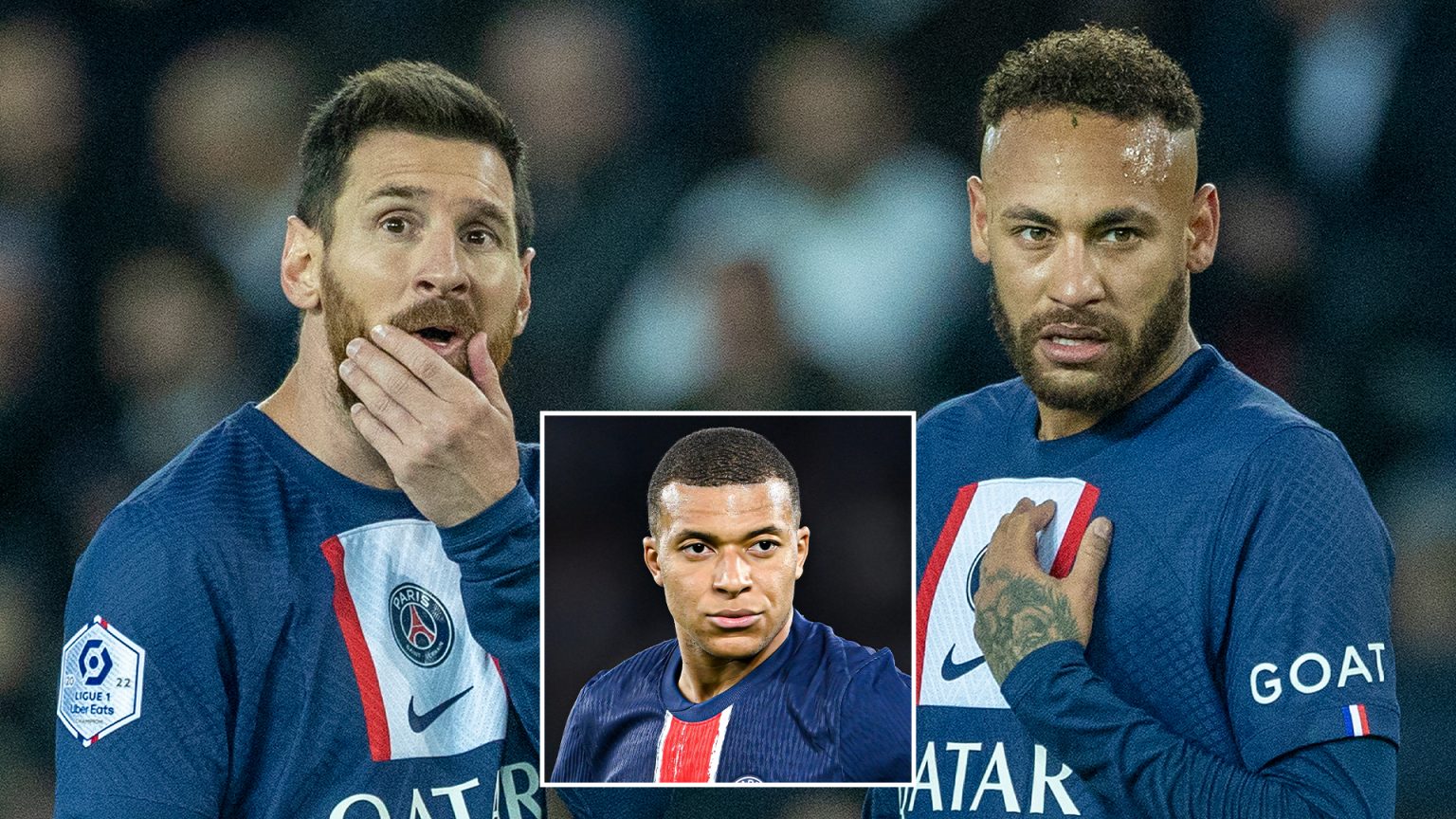Neymar’s candid reflection on his time at Paris Saint-Germain reveals the complexities and challenges of managing a team brimming with superstar talent. He points specifically to the arrival of Lionel Messi in 2021 as a turning point in his relationship with Kylian Mbappé, suggesting that Messi’s presence inadvertently sparked a shift in Mbappé’s demeanor. While Neymar acknowledges past disagreements with Mbappé, he also emphasizes the young Frenchman’s initial importance to the team, recalling a period of mentorship and close camaraderie. However, he believes that Mbappé’s reaction to Messi’s arrival, which he interprets as jealousy over shared attention, led to friction and behavioral changes that ultimately disrupted the team’s dynamic.
Neymar’s analysis goes beyond simply attributing blame to Mbappé’s alleged jealousy. He offers a broader critique of the challenges inherent in managing a team with multiple “big egos.” Drawing from his experiences at both PSG and Barcelona, where he played alongside Messi and Luis Suarez, Neymar argues that an overabundance of individual ambition can be detrimental to team success. He stresses the importance of teamwork, mutual support, and a shared commitment to collective goals, suggesting that without these elements, even the most talented individuals will struggle to achieve meaningful victories. His words highlight the delicate balance required to harness the strengths of star players while mitigating the potential for ego clashes and internal conflict.
The Brazilian forward’s insights offer a fascinating glimpse into the inner workings of a star-studded team, shedding light on the human dynamics that can underpin success or failure. He doesn’t shy away from acknowledging the existence of egos within the sport, even suggesting that a certain level of self-belief can be beneficial. However, he emphasizes the crucial distinction between healthy confidence and a detrimental sense of entitlement. Neymar’s argument is that when individual egos overshadow the collective goals of the team, collaboration breaks down, and ultimately, winning becomes impossible.
The timing of Messi’s arrival at PSG appears, in Neymar’s view, to have been particularly disruptive. He paints a picture of a previously strong bond with Mbappé, one built on mutual respect, mentorship, and shared on-field understanding. The “golden boy” moniker he used for Mbappé suggests a genuine admiration for the young player’s talent and potential. Neymar implies that this positive dynamic was eroded by Mbappé’s perceived jealousy of the attention Messi received, leading to a breakdown in communication and cooperation.
The subsequent departure of all three players from PSG further underscores the challenges the club faced in managing its constellation of stars. Neymar’s move to Al-Hilal in Saudi Arabia, Mbappé’s transfer to Real Madrid, and Messi’s journey to Inter Miami suggest that a fresh start was needed for all involved. These moves also highlight the transient nature of modern football, where even the most celebrated partnerships can be relatively short-lived.
Neymar’s reflections offer valuable lessons for team management and player dynamics. His emphasis on the importance of teamwork, humility, and a shared vision, even in the presence of immense individual talent, provides a thought-provoking perspective on the complexities of building a winning team. His experience at PSG serves as a case study in the challenges of balancing individual brilliance with collective harmony, a challenge that continues to resonate throughout the world of professional sports. While individual talent undoubtedly plays a crucial role, Neymar’s insights suggest that true success requires a delicate interplay of individual ambition and collective purpose.











